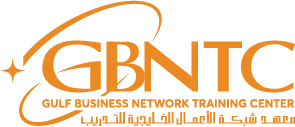In the fast-paced environment of relocations, proper scheduling stands as a cornerstone of a successful transition. Individuals or businesses embarking on a move often face logistical challenges that require meticulous planning and organization. The presence of experts who specialize in orchestrating these tasks can turn a potentially stressful experience into a seamless process.
When managing the intricate details of a relocation, having a dedicated professional can make all the difference. From coordinating timelines to overseeing the transportation of belongings, these specialists ensure that every aspect of the move is addressed. For those looking to streamline their experience, guidance from seasoned professionals provides a pathway to a smoother operation.
Attention to detail in scheduling is crucial, as it involves aligning various factors such as availability of transport, packing timelines, and even the readiness of new spaces. This careful orchestration not only minimizes potential hiccups but also enhances the overall satisfaction of those involved in the move.
Understanding Responsibilities of Moving Facilitators
Effective move management requires a structured approach, where facilitators play a pivotal part in ensuring satisfaction and smooth transitions. These professionals are responsible for overseeing various logistical aspects and provide crucial customer support throughout the entire process.
In their role, these specialists coordinate crucial elements that contribute to a successful relocation. Their responsibilities include:
- Logistics Coordination: Ensuring all moving parts align seamlessly, from vehicle arrangements to inventory management.
- Scheduling: Creating a timeline for each phase of the move, which helps prevent delays and ensures timely execution of plans.
- Problem-Solving: Addressing unexpected challenges that may arise, leveraging creativity and experience to find effective solutions.
- Communication: Maintaining clear lines of dialogue with clients, team members, and third-party vendors to facilitate collaboration and transparency.
By excelling in these areas, facilitators not only enhance the relocation experience but also build long-lasting relationships based on trust and reliability.
Communication Between Clients and Relocation Teams
Establishing clear communication between clients and logistics teams is paramount for successful move management. Efficient channels facilitate seamless interaction, allowing for quick adjustments in plans or schedules. Professionals at https://fastmoversla.com/ understand how to bridge the gap, ensuring that all parties remain informed throughout the relocation process.
Effective problem-solving hinges on direct communication. By articulating needs and concerns, clients empower relocation specialists to address issues proactively. Scheduling becomes clearer, and misunderstandings are minimized, allowing for a well-coordinated effort. Professional guidance through intricate logistics coordination can significantly enhance the overall relocation experience.
Strategies for Managing Logistics and Timelines
Successful relocation relies heavily on comprehensive logistics coordination and precise scheduling. Understanding how to effectively manage these components can greatly enhance the client experience. One key approach is to utilize customer support systems, enabling accurate tracking of ongoing timelines and immediate response to unforeseen challenges.
Collaboration between all parties involved is critical for smooth execution. Establishing clear lines of communication not only aids in setting realistic expectations but also ensures that any adjustments are made swiftly. Regular updates and collaborative planning sessions can alleviate potential stress and enhance trust throughout the process.
Incorporating professional guidance during relocation planning can identify optimal routes, resources, and timelines. By analyzing logistics thoroughly, organizations can foresee and mitigate potential delays, thus ensuring that relocations proceed as smoothly as possible. This proactive approach to move management helps maintain morale and satisfaction for all stakeholders involved.
Lastly, emphasizing the importance of adaptability allows teams to shift strategies as needed. With proactive management and an open line of communication, relocations can achieve both efficiency and effectiveness while meeting the needs of everyone involved.
Tips for Addressing Common Challenges During Relocations
Relocation often presents various challenges, but with proper planning and support, clients can navigate these hurdles effectively. One crucial aspect is scheduling; precise timelines can alleviate stress and streamline the entire process. To equip yourself better, consider seeking professional guidance that caters to your specific needs.
Open lines of communication play a significant role in easing concerns. Keeping everyone informed, from clients to packing teams, fosters a collaborative atmosphere that can help address any emerging issues swiftly. Regular updates and clear exchanges of information ensure that everyone is aligned with relocation plans.
Experience live dealers at https://fastmoversla.com/ for real casino action.
Logistics coordination is another challenge that must be tackled head-on. From securing transportation to managing inventory, understanding the intricacies of logistics will enhance the move management process. Clients should work closely with specialists to track progress and make adjustments as needed.
Last but not least, robust customer support can make a world of difference. Access to resources and assistance during the entire relocation enables clients to feel more in control and confident in their decisions. With these strategies in place, the transition can become a smoother experience, paving the way for a successful relocation.


Comments are closed